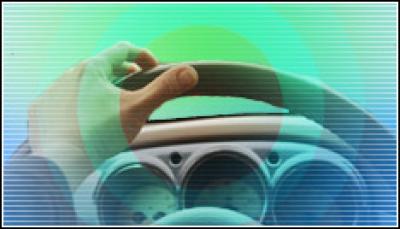The UK’s Ministry of Defence (MOD) has announced that it is adopting technology which should help cut road accidents and also improve the sustainability of the organisation’s own vehicles.
The MOD announced late in December that it has signed a contract with sustainable driving technology specialist GreenRoad, which will cover around 4,500 vehicles in the MOD fleet for the next three years. Although the deployment is being discussed mainly in terms of reducing accidents from reckless driving, GreenRoad’s technology also allows organisations to monitor how sustainably vehicles are being driven.
The MOD has been using GreenRoad’s technology since 2008 and claims to have seen a 31 percent reduction in “high-risk driving manoeuvres” during that time. “GreenRoad’s service not only saves lives but also makes environmental and business sense,” said GreenRoad general manager Aidan Rowsome.
GreenRoad’s technology compromises several components including in-vehicle coaching that provides automated feed-back to drivers as well as collating the information online for analysis. According to GreenRoad, the in-vehicle aspect of its technology – called GreenRoad Live – uses a series of sensors to monitor up to 120 different aspects of the way the vehicle is being driven including speed handling, cornering, land handling, braking, and acceleration.
“While billions of dollars are invested in safety and fuel-related vehicle equipment, road infrastructure and transportation asset management, very few resources are targeted at the greatest variable contributing to crashes and fuel consumption – the driver. Yet, improving driving behavior delivers significant returns to companies, government policy initiatives, the insurance industry and consumers,” the company claims.
In November last year, IBM released a report claiming that smart use of technology could help improve the efficiency of trucks and lorries, which have been blamed for the bulk of the carbon emissions from road transport. The IT company said that technology such as telematics could help improve the speedy servicing of vehicles and fix any defaults that could reduce efficiency. “Today’s vehicle diagnostic techniques typically require the technician to physically connect to the vehicle,” IBM said. “However, it won’t be long before telematics capabilities enable remote diagnostics of a vehicle’s issues and use of remote patches when possible.”
In September, the MOD hired IT services company Logica to install data monitoring technology in its buildings and help drive down the £300 million it spends on energy every year. MOD said that is installing a system based on Logica’s Sustainability Indicator Reporting Application (SIRA) which is able to capture data from smart meters which are already being installed in defence facilities.





